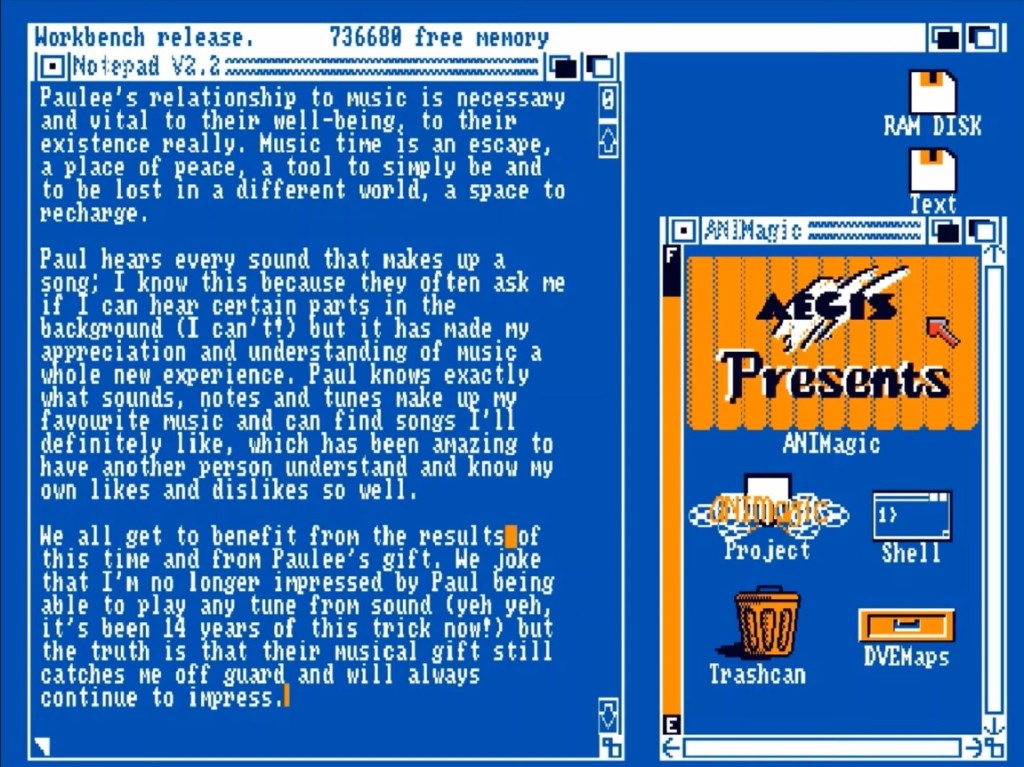Paulee Aex Bow, who has lately given us tours of the Commodore Amiga and Roland V-Synth, speaks in an extensive, poignant video about their experience with autism. It’s a much-watch for neurodivergent and general audiences alike.
Paulee has an extensive resume in the music community; in addition to the new Magical Synth Adventure channel, they’re a regular podcaster and writer for Sonic State and the composer of the wonderful Arcade Dreams documentary (see below). In this video, they explain autism in a way that anyone can help understand folks with that diagnosis – which I expect will resonate with essentially anyone with experience of neurodivergence and, more broadly, creativity. They talk about listening and awareness, musical skills – even music and silliness. But there’s also the matter of challenges and trauma. I know we have plenty of neurodivergent readers and even more who experienced bullying and other discrimination.
This is just one person’s experience – and Paulee is upfront about that, focusing entirely on their personal story. That means it may not align completely or at all with other experiences of autism. But taken with that in mind, it’s well worth watching, even just to know Paulee better.
Oh, yes, this moving video is also full of excellent Amiga graphics and a deep musical soundtrack.
I’d quote it, but there’s too much – just watch the whole thing, please.
It seems we have a special obligation in music to understand neurodivergence and diversity in general. Music is often an outlet for expression and joy, for unique abilities, when other outlets fail. But because of the music industry (and the musical instruments industry), it also can be a source of entrenched discrimination and further trauma. I’m hopeful that folks like Paulee are taking risks and speaking publicly because all of us can do better with more information. (A late-stage diagnosis is a reminder we can sometimes use that information about ourselves, too.)

And one thing that I’m sure will reach everyone on this site: not everyone sees their career open up or find validation early in the career. All kinds of obstacles can prevent us from that. Take all of that, and imagine how significant it is to be able to get a diagnosis and find ways to work through trauma and address mental health. So perhaps the most universally empowering part of this video is hearing Paulee talk about finding step with a career later, after struggling early on with these obstacles and self-doubt. (And yeah, 40, but repeat that sentence with much higher numbers, too. It never has to be too late.)
I say that like that’s an easy thing to say, but I know probably everyone reading this knows it’s not, and knows the self-doubt side too well. Few people in music can open up the way that Paulee does, including being open about those moments of jealousy and feeling the music world can be unfair, let alone about autism.
Anyway, I’m curious to hear feedback and perhaps even from other autistic readers if you want to say hello.
Do check out that soundtrack for Arcade Dreams, too. Gun Fight, wow! And Paulee isn’t kidding when they say they can pick up any musical genre and run with it.
Previously: